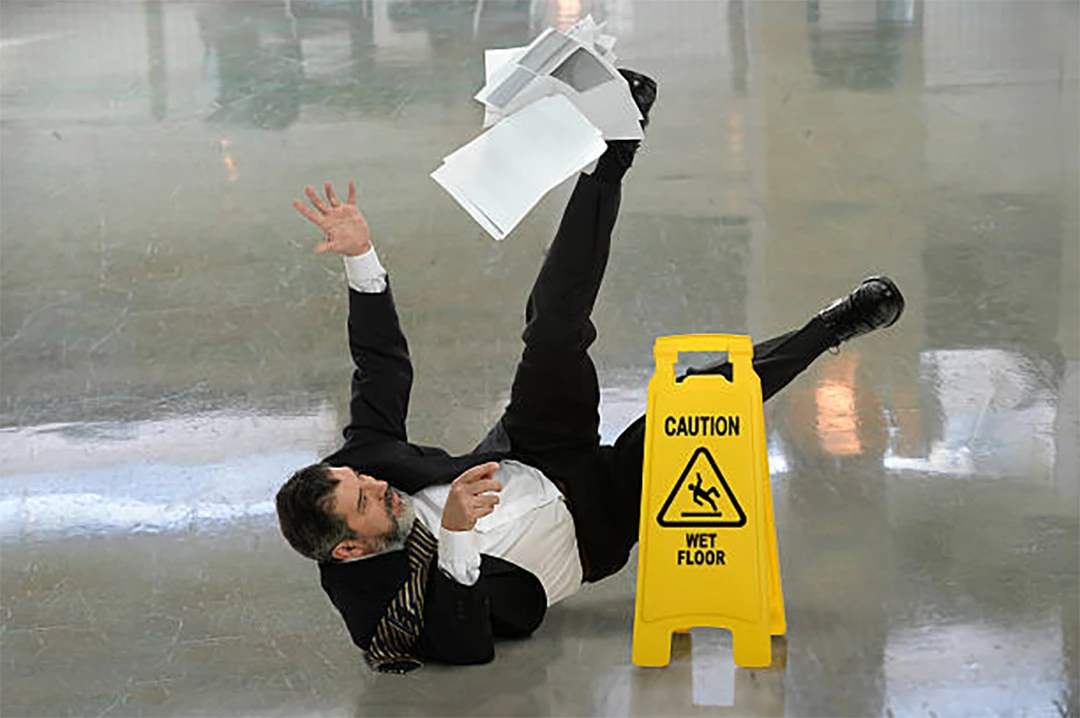
Recovering from a slip and fall injury can be a physically and emotionally taxing process. But if you’re intentional with your approach, you can speed up your healing and enjoy a better overall recovery.
1. Seek Immediate Medical Attention
One of the biggest mistakes you can make after a slip and fall is not seeking medical attention right away. Even if you feel like you’ve only sustained minor injuries, some issues might not be immediately apparent. Adrenaline and shock can mask the pain, and certain injuries, like concussions or internal bleeding, may not show symptoms until hours or even days later.
By seeing a doctor immediately, you can ensure that all potential injuries are diagnosed and treated early. This step is crucial for both your health and any potential insurance or legal claims you might need to file. Medical documentation of your injuries will support your case if you seek compensation for your medical bills or lost wages due to the accident.
Speaking of legal claims, you’ll also want to make a phone call to a personal injury attorney once you’re stable enough to do so. They can help ensure you’re doing everything necessary to document your situation as carefully as possible.
2. Follow Your Doctor’s Advice
Once you’ve seen a doctor, follow their advice closely. Whether it’s taking prescribed medication, applying ice to reduce swelling, or resting for a certain period, sticking to the treatment plan is key to your recovery. Ignoring medical advice or rushing back into your routine too quickly can delay your recovery and worsen your condition.
If your doctor recommends physical therapy or follow-up appointments, make sure to attend those sessions regularly. Physical therapy is especially important if your fall caused injuries like sprains, strains, or fractures. A skilled physical therapist can guide you through exercises that improve strength, flexibility, and mobility, helping you regain full use of the affected area.
By sticking to your treatment plan and being patient with your recovery, you give your body the time and support it needs to heal properly.
3. Stay Active (When Appropriate)
After a slip and fall, resting is important. However, please note that total inactivity can sometimes do more harm than good. Depending on the nature of your injury, your doctor may recommend light exercise to keep your muscles moving and prevent stiffness. Gentle movement can improve blood circulation, which helps reduce swelling and speeds up the healing process.
If you’re recovering from a back, hip, or leg injury, it’s important to strike a balance between rest and movement. Your physical therapist or doctor will likely suggest safe exercises, such as stretching or walking, that help you stay active without putting too much strain on your injured body parts.
Always check with your healthcare provider before beginning any exercise routine to ensure it’s safe for your specific injury. Staying active when appropriate can not only speed up your recovery but also improve your mental well-being by helping you feel more engaged and less confined to bed rest.
4. Focus on Nutrition and Hydration
Your body needs the right fuel to recover from an injury, and that means paying close attention to what you eat and drink. A balanced diet rich in vitamins and minerals can help your body heal faster and reduce inflammation.
Make sure to include plenty of protein in your diet, as it’s essential for muscle and tissue repair. Lean meats, fish, eggs, and plant-based proteins like beans and lentils are all great choices. Calcium and vitamin D are important for bone health, so if your injury involves fractures, make sure to include dairy products, leafy greens, or fortified foods in your diet.
Staying hydrated is just as important as eating well. Dehydration can slow the healing process and lead to muscle cramps or joint stiffness. Aim to drink at least eight glasses of water per day, and consider increasing your intake if you’re engaging in physical therapy or light exercise.
Good nutrition and hydration will give your body the tools needed to repair damaged tissues and reduce inflammation, helping you recover faster and more effectively.
5. Take Care of Your Mental Health
Recovering from a slip and fall injury isn’t just about physical healing – it’s also about taking care of your mental health. The pain and limitations caused by the injury can take a toll on your emotional well-being, leading to feelings of frustration, anxiety, or even depression.
It’s important to acknowledge these emotions and find healthy ways to cope. Stay connected with friends and family for support, and don’t hesitate to talk to a therapist or counselor if you’re struggling with the emotional impact of the injury.
Mindfulness practices like meditation, deep breathing exercises, or journaling can also help you stay grounded and focused on your recovery. Sometimes, just taking a few moments each day to reflect on your progress or practice gratitude can make a significant difference in how you feel mentally and emotionally.
Adding it All Up
The most important thing is that you act quickly. Not only does this impact your physical recovery, but it can also have a major influence on the financial aspects of your case (and the compensation you receive to pay for your medical bills and other related issues).
By following the tips outlined above, you can move quickly and should enjoy a faster recovery!
Comments
comments